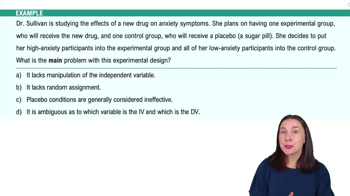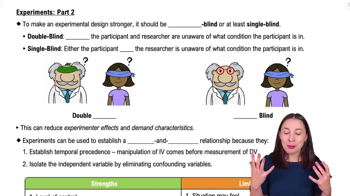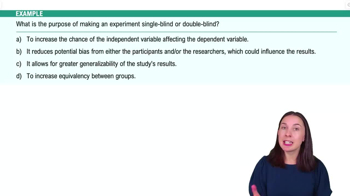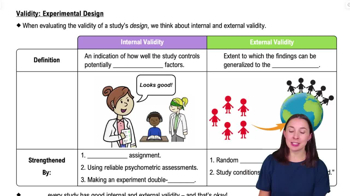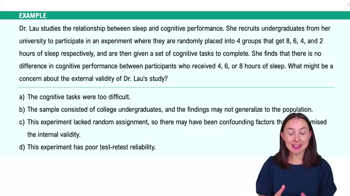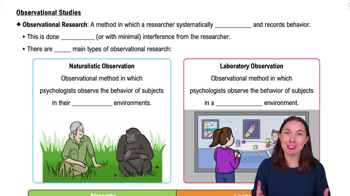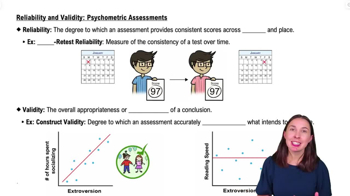Table of contents
- 1. Introduction to Psychology1h 43m
- 2. Psychology Research2h 20m
- 3. Biological Psychology2h 41m
- 4. Sensation and Perception28m
- 5. Consciousness and Sleep32m
- 6. Learning41m
- 7. Memory34m
- 8. Cognition37m
- 9. Emotion and Motivation35m
- 10. Developmental Psychology33m
- 11. Personality48m
- 12. Social Psychology41m
- 13. Stress and Health41m
- 14. Psychological Disorders44m
- 15. Treatment47m
2. Psychology Research
Intro to Research Methods
Struggling with Psychology?
Join thousands of students who trust us to help them ace their exams!Watch the first videoMultiple Choice
Moral and ethical issues in prenatal development and their associated biological and medical practices are studied in
A
genetics.
B
twins.
C
scaffolding.
D
bioethics.
 Verified step by step guidance
Verified step by step guidance1
Begin by understanding the term 'bioethics'. Bioethics is a field of study that deals with the ethical implications of biological and medical procedures, technologies, and treatments.
Consider the context of prenatal development, which involves the stages of development before birth. This includes genetic testing, medical interventions, and other practices that can raise ethical questions.
Reflect on the moral and ethical issues that can arise in prenatal development, such as the decision-making process regarding genetic testing, potential interventions, and the implications of these choices on the unborn child and family.
Explore how bioethics provides a framework for addressing these issues by considering the rights, responsibilities, and moral values involved in prenatal care and medical practices.
Conclude by recognizing that bioethics is the correct field of study for examining these moral and ethical issues, as it specifically focuses on the intersection of biology, medicine, and ethics.

 1:46m
1:46mWatch next
Master Roadmap of the Lesson with a bite sized video explanation from Hannah Gordils
Start learningRelated Videos
Related Practice










